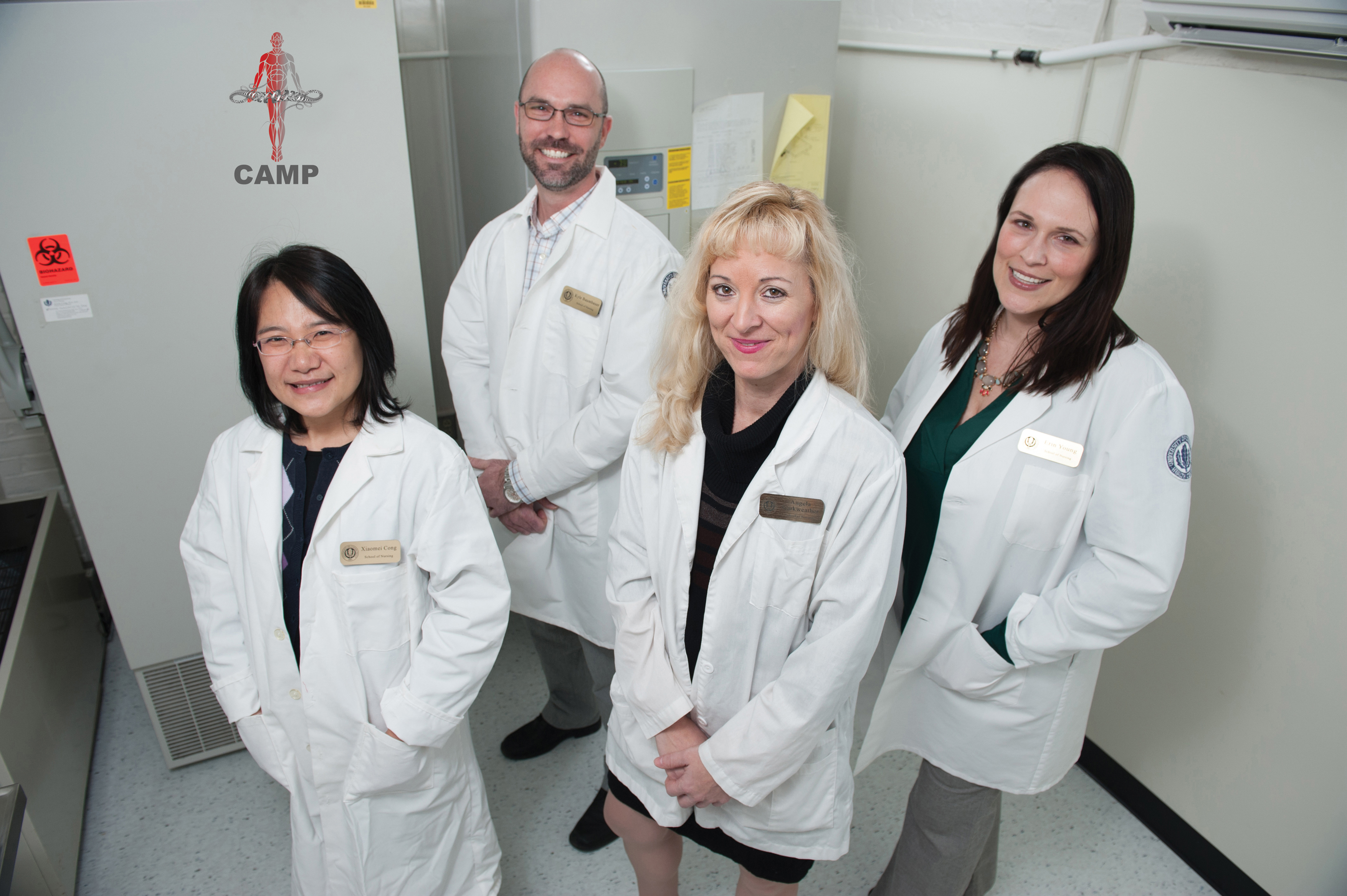After several years of preparation and strategic faculty recruitment efforts, the UConn School of Nursing this year has launched the Center for Advancement in Managing Pain (CAMP), an interdisciplinary translational research and clinical implementation center.
School of Nursing senior pain researcher Associate Professor Deborah Dillon McDonald, a specialist in chronic pain in older adults, in collaboration with Dr. Xiaomei Cong, a nurse researcher in neonatal procedural pain, developed the initial proposal for an interdisciplinary research and clinical application center.
When the UConn administration approved CAMP, the School of Nursing’s faculty began intensive national recruitment efforts. In 2014, two researchers conducting pain studies in animal models were jointly appointed to the School of Nursing and the UConn Health Center: Dr. Erin Young, a pain geneticist, and Dr. Kyle Baumbauer, a pain physiologist.
Dr. Renee Manworren, nurse scientist at Connecticut Children’s Medical Center, joined the team, studying pain genetics in pediatric and adolescent populations. In 2015, she was awarded a Center of Excellence in Pain Education grant, which is developing, implementing, and evaluating interprofessional modules to help clinicians address pain management.
A year later, nurse researcher Dr. Angela Starkweather took the reins as CAMP’s first director, recruited from Virginia Commonwealth University in Richmond, Virginia.
She is continuing her National Institute of Nursing Research (NINR)-funded research study on genetics of pain sensitivity and established two biobehavioral pain laboratories for CAMP, now a University-designated center. As a Friends of the National Institute of Nursing Research Ambassador, Starkweather will advocate for nursing science and was selected to further NINR’s goals by educating Congressional leaders and healthcare professionals, in order to improve research funding, by emphasizing the impact that nurse scientists and nursing research have made to improve Americans’ health.
CAMP’s unique niche is its focus on pain management from the cellular level to the systems level.
— Angela Starkweather
According to Starkweather, “CAMP’s unique niche is its focus on pain management from the cellular level to the systems level. We are also forging new partnerships across health care systems to assess how we can make a difference in pain management through patient and family support, policies and logistical issues. These efforts have led to many exciting interdisciplinary collaborations. We are also keeping an eye on policy issues involving pain management in the State of Connecticut as well as nationally.”
“While acute pain is a protective mechanism meant to help us survive, we know that there are ways to help reduce the pain associated with medical procedures, like immunizations, blood draws, and intravenous catheters,” Dr. Starkweather explained.
“By doing so, we can reduce the associated stress response, aversion to medical procedures and can facilitate motivating patients to get the screening tests or primary prevention measures to keep them healthy. The sequelae of chronic pain are much more profound and effects can be seen in virtually every system of the individual.”



